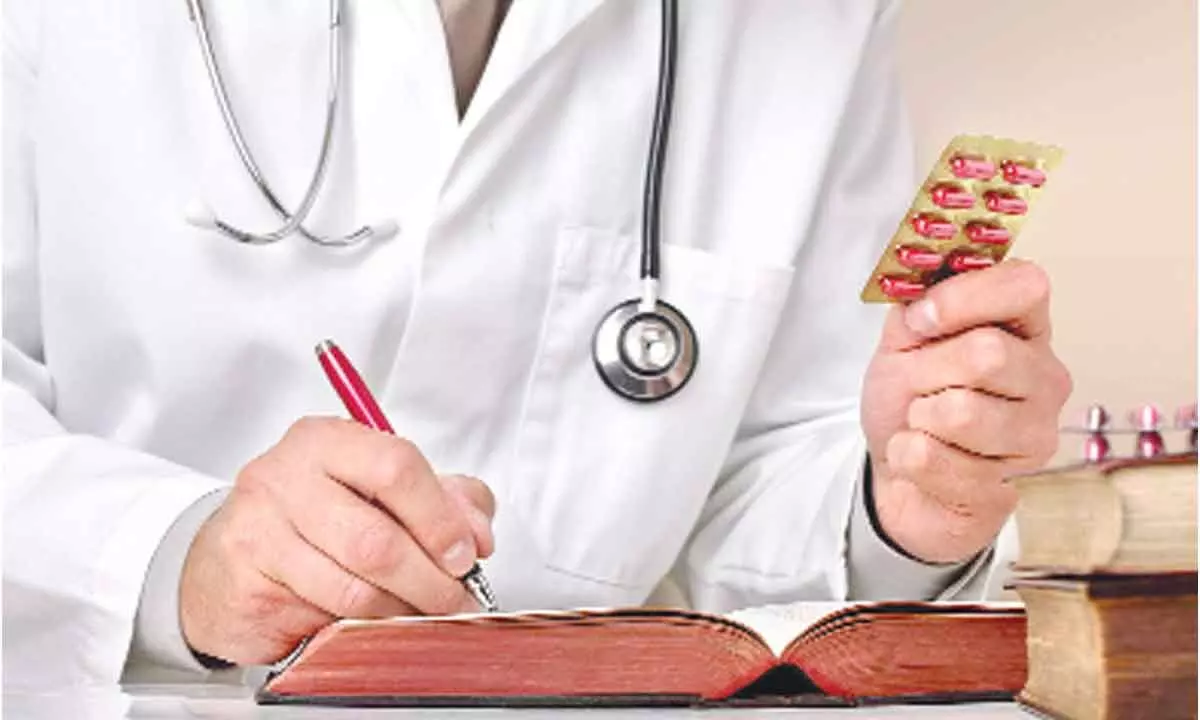Should free medicine samples be tax-exempt?

Pharma cos have some valid points to argue to exclude free medicine samples
The pharmaceutical companies in the country have recently knocked at the door of the Central Board of Direct Taxes (CBDT) to keep free medicine samples provided by them to the medical practitioners and hospitals outside the purview of Section 194R of the Income Tax Act-1961 as the same does not benefit them. Section 194R, which came into effect from July 1, 2022, provides for tax deduction at the rate of 10 per cent of the value or aggregate of value of any benefit or perquisite, whether convertible into money or not, provided to a resident arising from carrying out of a business or exercising of a profession by such resident.
The pharmaceutical companies are arguing that the free medical samples provided to hospitals or doctors are not benefits or perquisites in the hands of doctors. Such free medical samples are statutorily required to be used by the doctors for clinical evaluation purposes or testing the efficacy of the medicines by giving them to patients free of cost and cannot be sold or monetized by them. Accordingly, such free medical samples are not consumed by the doctors for any personal benefit nor they can earn any income by selling such samples to the patients. Such free medical samples are passed on to the patients free of cost and the benefit, if at all any, is accruing to the patients which cannot be subjected to TDS under Section 194R as such benefit is not arising to the patients from any business or profession.
Of course, the pharmaceutical companies have made some valid points to drive home some hard facts. The receipt of free medicine samples is not treated as taxable income under Section 28(iv) of the Income Tax Act for the doctors as the said samples are not consumed by them and in fact is passed on to the patients or discarded in other cases. Besides, providing samples of pharmaceutical products is not prohibited under either the Indian Medical Council (Professional Conduct, Etiquette and Ethics), Regulations 2002 (MCI Code) or the Uniform Code of Pharmaceutical Marketing Practices (UCPMP) released by the Department of Pharmaceuticals in 2014. So, if it is brought under tax net, the doctors may refuse to provide their PAN number to the pharmaceutical companies or even receive any such free samples from the companies. If the doctors refuse to receive free medical samples from the pharmaceutical companies, it will be extremely challenging for any company to introduce new drugs into the market or test its efficacy or even increase knowledge about their products in the market. Such measures in turn will impact the patients and humanity at large and therefore should be addressed at the earliest. Alternatively, if the TDS is grossed up by the pharmaceutical company, then it will significantly increase the additional cost burden on the industry which may in turn lead to increase in the price of the medicines and therefore again have an impact on the patients and humanity at large.
It is common knowledge that free sample of medicines supplied to doctors is done for promotion of the product of the pharmaceutical company. When a new product is launched, the doctors through the free sample provided, test the efficacy of the new drug launched in the market, give necessary inputs regarding the use and effectiveness etc. of the product. Provision of free samples help impart knowledge to other doctors about the new medicine/product coming into the relevant practice of their profession.
Therefore, distribution of free samples is directly related to business promotion activity of the pharmaceutical company and no benefit or perquisite arises to the doctors from such samples. Another valid point is that UCPMP prescribes guidelines under which medical samples should be dispensed which ensure that they are used strictly for clinical evaluation purposes and each sample shall be marked "free medical sample – not for sale".
Even the draft Uniform Code for Medical Device Marketing Practices (UCMDMP) published for stakeholder consultation on March 16, 2022 lays down guidelines to ensure that medical devices are distributed as samples for evaluation purposes only. The Drugs and Cosmetics Rules, 1945 also recognizes the practice of providing drugs for distribution to medical professionals as a free sample by providing specific labelling requirements, requiring such samples to be labelled with the words 'Physician's Sample – Not to be sold." Now that the pharmaceutical companies have driven home their points, the government should consider them with the deserving seriousness.
(The author is freelance journalist with varied experience in different fields)














